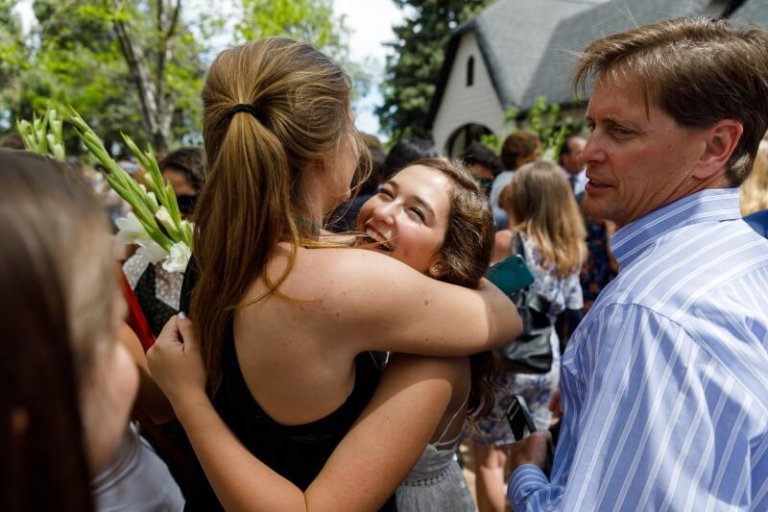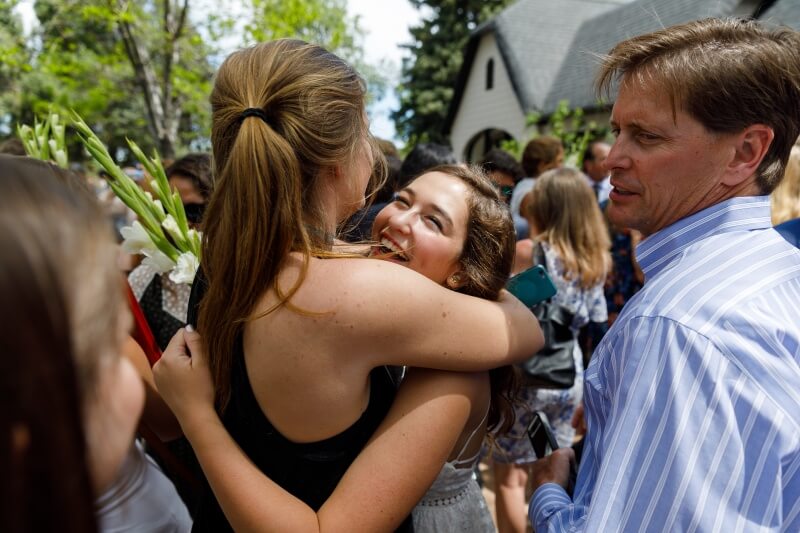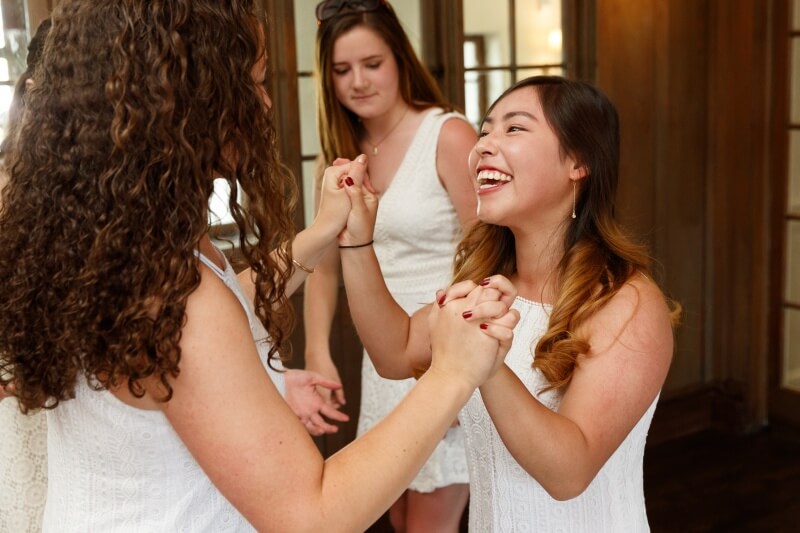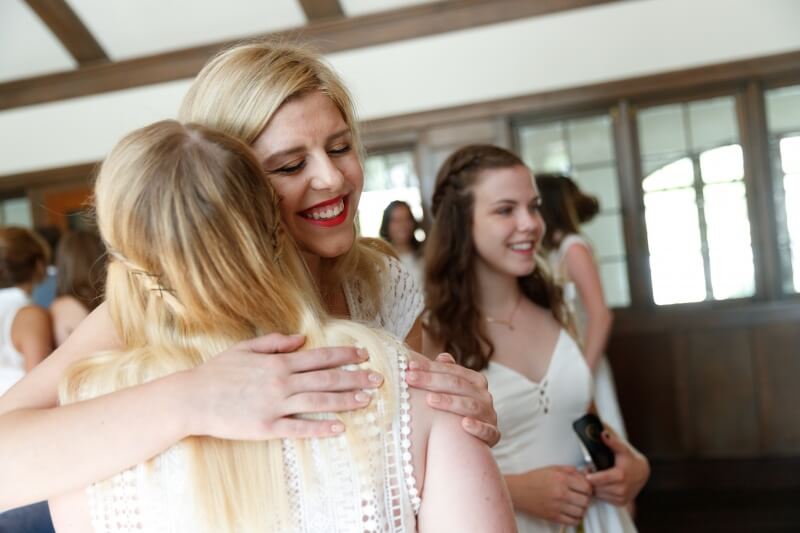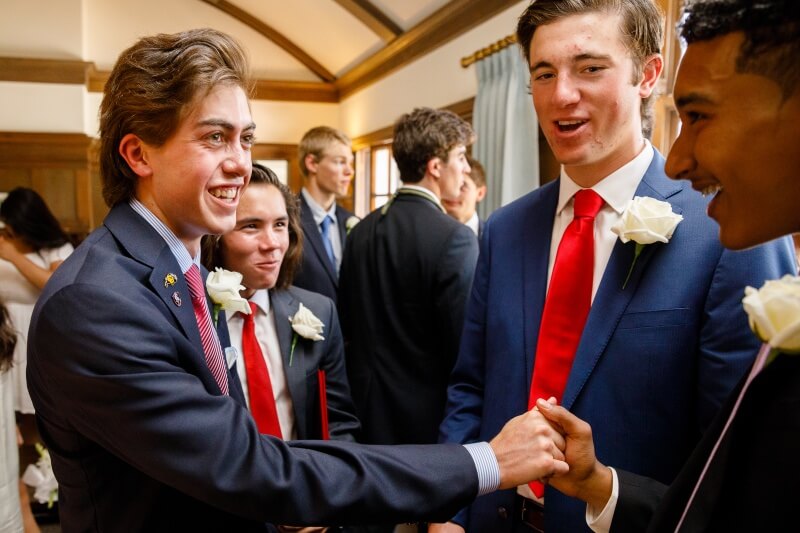I want to share some thoughts about CA’s Class of 2017, a diverse collection of young women and men whose impending graduation we are celebrating this week. At 104, this is the largest group of Seniors ever to graduate from CA. They have achieved and excelled in numerous ways from the classrooms to performance spaces to the playing fields. More importantly, they have exhibited the best personal qualities we want our CA graduates to have. Often schools speak of a “portrait of the graduate”: a vision of what their Seniors should possess, in terms of skills and character traits. While we are an achievement-oriented college-preparatory school with plenty of achievements about which to boast, we want our students to be more than just high-performance machines; we wish for them successful and personally fulfilling lives.
A few years ago the school undertook a very thorough process to identify the key components of our school culture. After months of discussion and the involvement of all our constituencies, we landed on the concepts that we thought captured the most essential aspects of our culture: Courage, which includes grit and responsibility; and Kindness, which incorporates inclusivity and gratitude. Although we already exhibited these qualities, we wanted to focus on them by being more intentional about them in our everyday practice. At Colorado Academy one of the many advantages to our PK-12 environment is that we can start this work with our youngest students and maintain consistent effort all the way through. It’s important to instill and reinforce these values at an early age and make them relevant to all age groups. We want these words go beyond admission brochures and newsletter articles and rhetoric at nice speeches like these. They should be essential threads in our cultural fabric. Moreover, there ought to be visible evidence of these things in action—tangible manifestations that occur on a daily basis that show how students are actually living out these ideals.
We turned to experts like the writer and self-described “minimalist,” Joshua Becker, who has created, for example, a list of 20 New Ways To Measure Success. The list includes the category of “Courage During Adversity.” Becker reasons that “Courage can only be revealed when it is required. And only those who have displayed it and acted upon it during adversity can lay claim to its possession. This adversity can take on many different forms, but courage will always look the same: action in the face of fear.”
So, let me be very clear: I saw plenty of evidence of courage in this class. I could identify dozens of examples, but tonight I will highlight a few of the examples that leap to mind.
Bridget, I can’t imagine standing in front of a small goal with aggressive players charging and very hard objects being flung at you, but you hang in there without flinching. You do it in the classroom, too, much to our admiration. James, you showed great courage when you gave a Senior speech on a personal issue and showed what it truly means to be a devoted family member. I know public speaking is not your favorite thing to do, yet you were compelled to share the story in the hope that others would benefit. Jared, it takes courage to uproot yourself from your current home and school and spend half a year in the wilderness, but that’s what you did last year. And the growth over that time was remarkable to see.
Several in this class persevered through physical challenges in ways that showed daily courage and resilience. Keenan, you astounded us with your resilience and your dedication to all aspects of school life. When I was on an Interim with you last year, I saw firsthand how differently complex the world is to navigate from a wheelchair. Sophia, you helped us understand better the non-hearing world. Your Senior speech gave us great insight into the journey you have made and the amazing confidence you have built. Peyton and Mollie, your Senior years did not go as you would have predicted when you entered high school, yet we were so impressed with the way you fought through numerous setbacks. Whatever you might have been feeling at school, I will recall that 95% of the time you had smiles on your faces while working through an academic or artistic challenge. Christian, we almost lost you last summer, but as you told us, your stubbornness carried you through. That boldness in the face of adversity is admirable indeed.
Many of our most courageous students don’t necessarily think of themselves as courageous, nor are they looking to be examples for others. They may even be cringing at the recognition right now. But that’s part of what makes them admirable. There’s been no whining, no excuses offered, no pity desired.
I also think of the many Seniors I have seen stand by their convictions, no matter what the issue or cause: SunHee, Crissie, Arthur, Paige, Maggie, Jack Parham, just to name a few. You have spoken out about things you believe in, or have exemplified courage by being true to who you are. We are a very accepting place here at CA, but it still takes personal courage to be respectfully outspoken or different in some way. Adolescents typically crave normalcy (whatever that is supposed to look like) and don’t generally want to stand out too much, so I celebrate any individual who is truly willing to be an individual.
But what about kindness? I should note that being kind is not just a feel-good philosophy that demands that everyone is nice to each other all the time. On the contrary, genuine kindness must be authentic, not coerced; and believe me, both the giver and receiver know the difference. Not only that, the research is clear that kindness, as well as expressing gratitude, is actually good for your health. Not only do you get a mental boost, but positive physiological changes are generated as well. As one kindness expert espouses, “Scientific evidence has proven that kindness changes the brain, impacts the heart and immune system, and may even be an antidote to depression.”
Not bad. And I am pleased to report that kindness abounds in this class.
If you check out the Senior Journals, you’ll notice many Seniors point out that one of their favorite CA traditions is our Senior-Kindergarten Buddies program. Could there be a better example of CA kindness on a large scale? This community values the power of older students mentoring younger students, and we know our older students are genuinely nice to the younger ones. The Seniors exhibit a huge amount of patience and energy. One look at their exhausted faces returning from their annual field trip to the zoo shows that this program helps them truly appreciate what it means to keep up with a 6-year-old. Still, some would argue that the Seniors actually get more out of this program than the little kids. Our Kindergartners—or is it Kindergartners?—are being exceedingly kind to our Seniors for letting them into their world. Either way, the culture reinforces the idea that kindness and compassion, regardless of the age group, matters.
Some of the kindest students I have ever worked with graced this class, and they will be remembered fondly for their generosity of spirit. I could mention so many students, but let us start with Eliza, whose genuine and effusive nature, along with her uncanny ability to brighten anyone’s day, make her one of the kindest and truly unique people I have ever met. You know people love Eliza because when they say her name, they often just put their hand to their heart in a gesture of “can you believe how nice she is”? And then we have Claire Greydanus, whose outstanding service work led to her recently receiving the Never Forgotten Scholarship, given annually to twelve students in the state in honor of the twelve slain students at Columbine High School. Or how about the kindness of Matt Pollack or Jack Cmil, whose sensitivity towards and mentorship of their freshman CLT students made those students feel genuinely valued and appreciated?
This class did a wonderful job of expressing gratitude, as well. At the recent advisory dinner students paid warmest thanks to their advisors and other faculty members in their lives. I witnessed Sophia Rodawig give one of the most heartfelt tributes to her longtime cello teacher, Jennifer Arnold. Being grateful is one thing; the ability to express it is even better.
Again, Joshua Becker’s work is informative here when he speaks about “Gratitude despite circumstance.” We should be appreciative for things that truly matter because that means we are “focused on the right things. And those who are focused on the right things tend to bend their lives towards those things… and draw others along with them.”
I would like to express my gratitude to a wonderful class of 2017. You have drawn us along with you on your journey. While you have learned and absorbed many important lessons in your time here, you have also taught me and others here so much.
